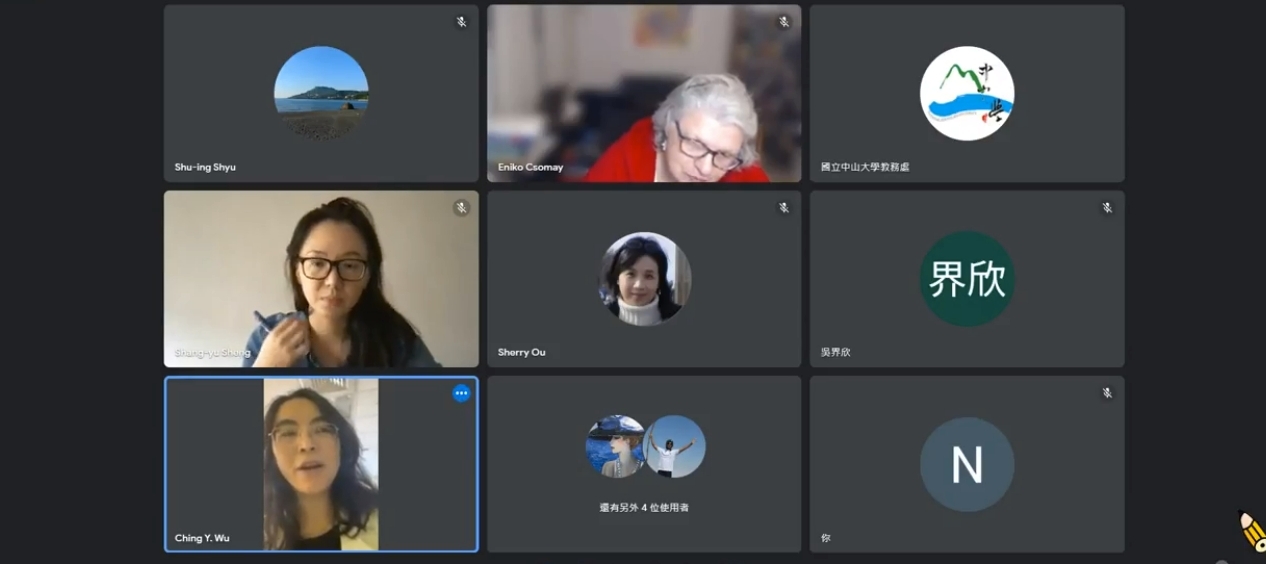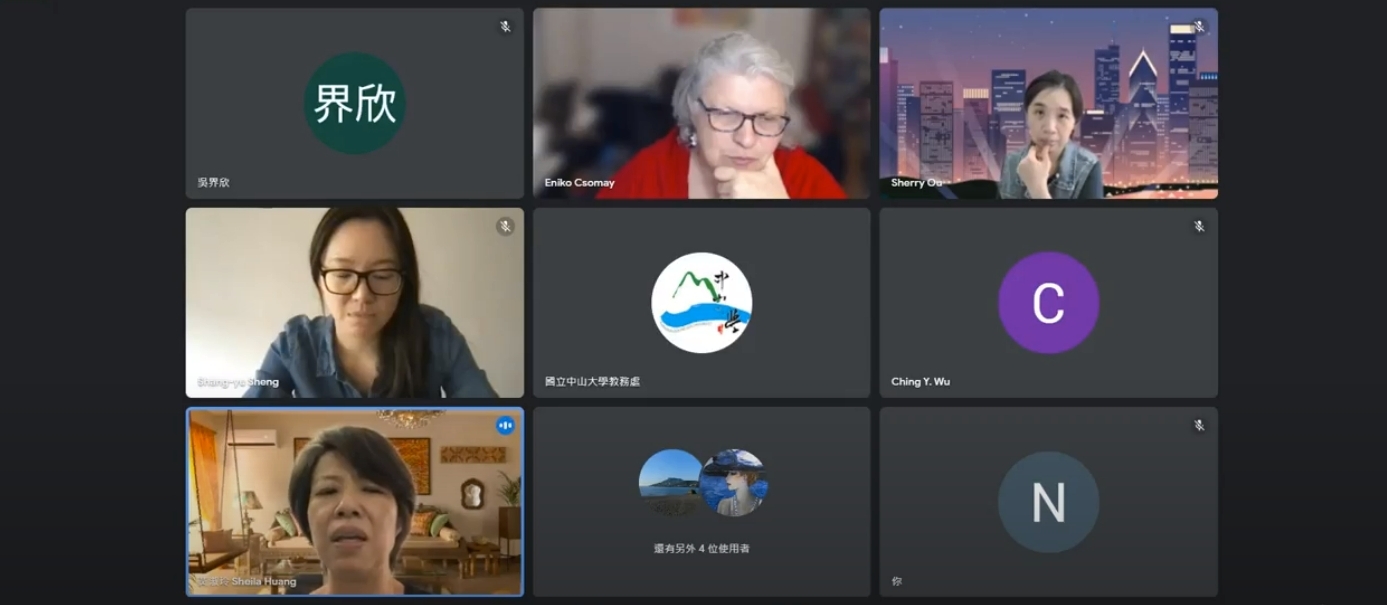EMI Microteaching and Peer Mentoring Joint Project: Session 4-6
【NSYSU X AIT】English Language Specialist Program─EMI Microteaching and Peer Mentoring Joint Project
Session: Fourth
Time: Friday, November 11, 2022, 9:30 A.M.-11:30 A.M.
Specialist: Dr. Eniko Csomay
Mentor: Dr. Cheng-chau Chiu
Microteaching presenters/Topic:
1. Dr. Dr. Shu-Fei Tsai/Reinforcement—Strategies for Increasing Behaviors
2. Dr. Wei-Ni Huang/Parkinsonian Gait
The 4th session of the Microteaching and Peer Mentoring Joint Project was carried out with Dr. Shu-Fei Tsai's profoundly interactive and dynamic real-classroom lesson on Reinforcement Theory and Dr. Wei-Ni Huang's extraordinarily well-paced and organized lecture on Parkinsonian Gait. Dr. Tsai gave explicit explanations and extensive examples to help students comprehend; Dr. Huang formulated her lecture with ample signposting words and visual aids which made hard ideas easy to understand. Both professors demonstrated their professionalism in EMI, and the mentor Dr. Cheng-chau Chiu and Eniko also specified some minor parts that could be carried out differently.
.png)
.png)
Following the regular part is the SpecialTea activity, where participants form into small groups getting acquainted with one another through designed questions, and proceed to share their experiences as an EMI educator. Back together, Dr. Eniko conducted discussions about various ways with which to engage students. Teachers stated the importance of making students realize that the class is not the teacher’s solo play, but an environment that needs both parties to work together with effort. When sharing their metaphors for EMI teaching, Prof. Tong-Yu Hsieh described it as the scaffolding around little flowers, while Prof. Chi-I Lin shared her understanding of EMI as Experience, Motivation, and Inspiration. Through the casual conversations during the SpecialTea session, participants in this program would know more about others’ thoughts on EMI and know how to make classrooms more interactive!
.png)
.png)
Session: Fifth
Time: Friday, November 18, 2022, 9:30 A.M.-11:30 A.M.
Specialist: Dr. Eniko Csomay
Mentor: Dr. Shu-Ling Huang
Microteaching presenters/Topic:
1. Dr. Chieh-Hsin Wu/Brain Arteriovenous Malformation
2. Dr. Hui-Ching Wang/Evolution of Immunotherapy in Head and Neck Cancer
3. Dr. I-Lien Ho/Disability Performance in Kaohsiung
In the 5th session, the peer mentor Dr. Shu-Ling Huang's feedback was fantastically reflective, constructive, and valuable! Apropos of Dr. Wu and Dr. Wang's teaching demonstrations, both of which are on medical topics with considerable information, Dr. Huang recommended employing the strategy of "storytelling." For example, when teaching about a disease, we could focus respectively on the dimensions of "who," "why," "what," and "how (are its treatments different)." When there was enormous information to impart, the teacher's lecture tended to become monologic and prolix. Therefore, the advised strategy would be to teach students to learn by themselves, e.g., by focusing on certain topics only and organizing discussions so that students could learn deeply instead of roughly. If there were several research articles to read, probably we could establish a paradigm of reading through guiding one of them. When making slides, showing the connection between visuals and texts was also important. As for Dr. Ho's lesson about performance arts, Dr. Huang suggested an arrangement that would let students experience the concerned social engagement instead of explaining it, by switching the sequence of parts and asking simpler questions before going into more complex issues, for instance.
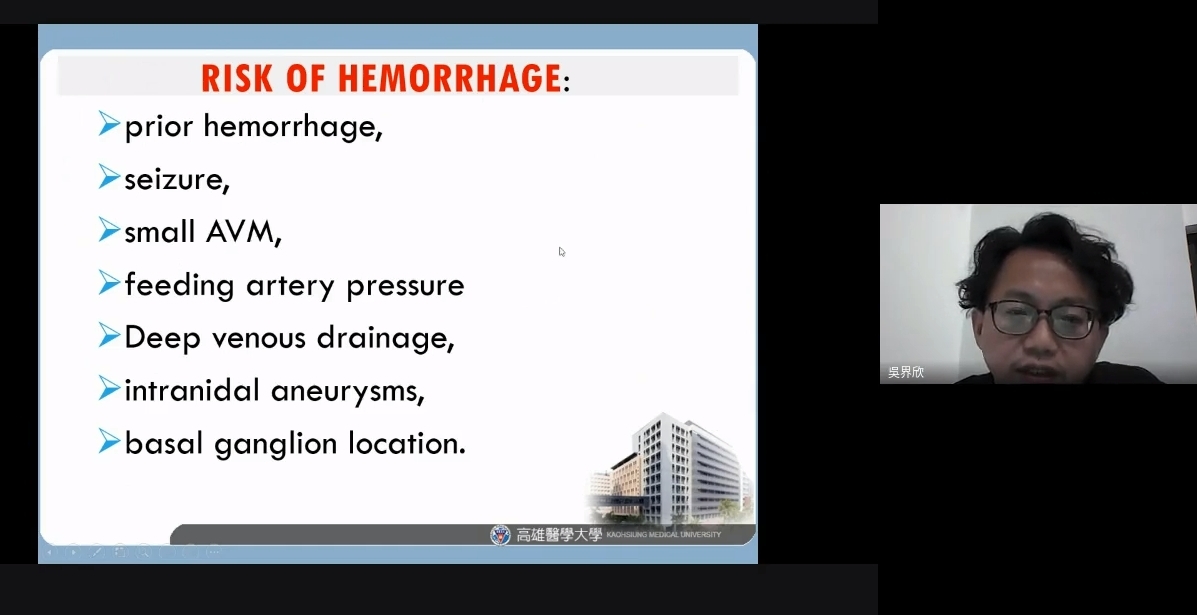
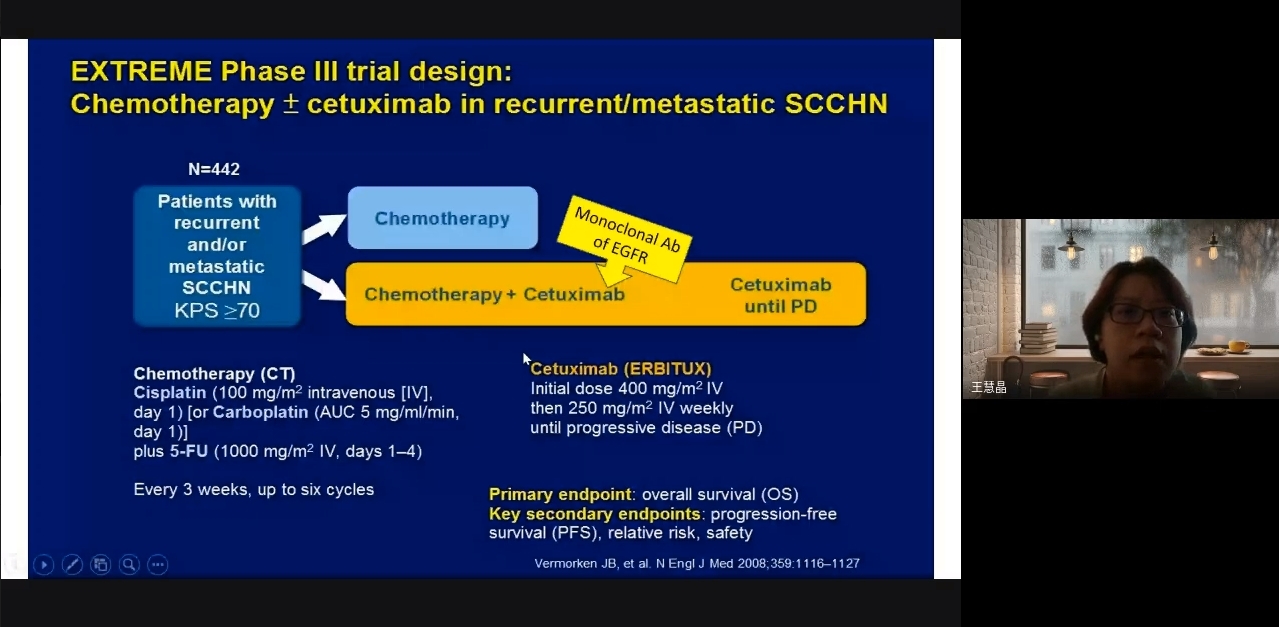
Dr. Eniko and participants had discussions upon teachers' mission in encouraging students to get out of their comfort zones and participate. Dr. Eniko thought classrooms are social environments, and it is far from inapposite for teachers to prompt students’ participation and make them talk and cooperate. It is not necessary for teachers to maintain total control. Giving students the freedom to speak will boost morale, making the classroom more dynamic and inviting. Students mustn’t think of themselves as mere listeners. Teachers should become agents of change and break such stereotypes by implementing interactions and activities in classrooms and get students out of their comfort zones.
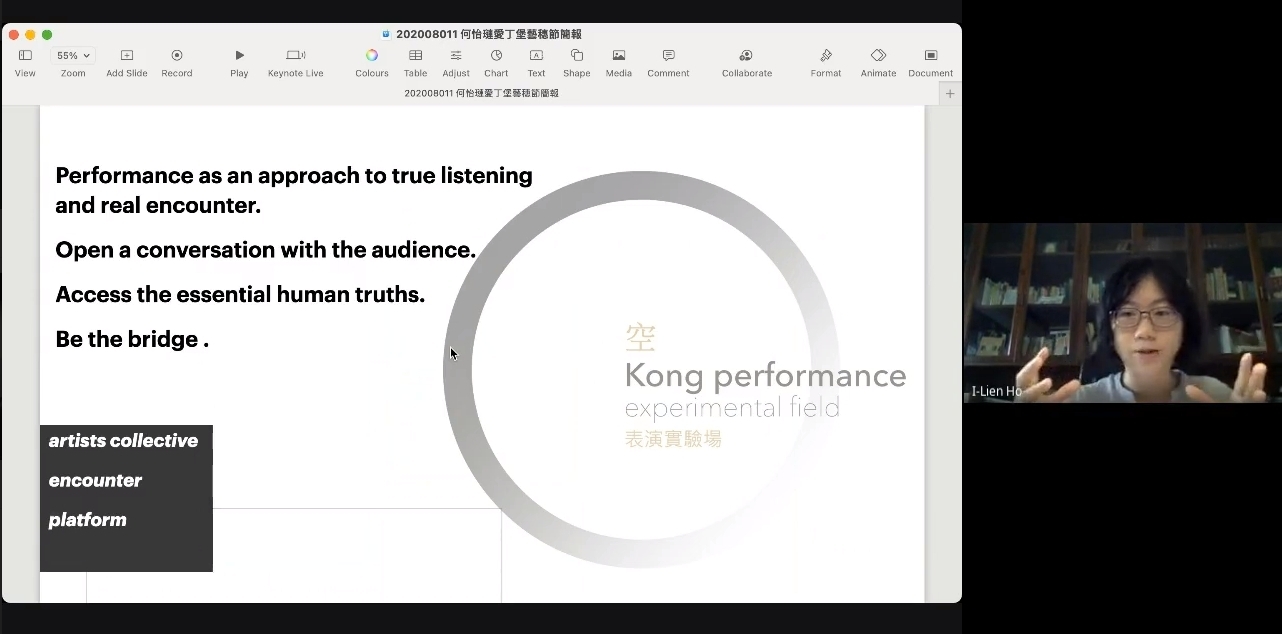
.png)
Session: Sixth
Time: Friday, November 22, 2022, 9:30 A.M.-11:30 A.M.
Specialist: Dr. Eniko Csomay
Mentor: Dr. Shang-Yu Sheng
Microteaching presenters/Topic:
1. Dr. Ching-Ying Wu/Acne Vulgaris
2. Dr. Shu-ing Shyu/A Review Session of the Previous lessons on the Old Testament
The peer mentor Dr. Sheng praised the highly informative and student-oriented lectures that both presenters had given, while also posed a question about the necessity of using English in certain practices. As Dr. Wu was in the field of medicine, and students in that field receive training to become doctors, teachers wondered how English could be helpful for students’ futures. English Specialist Eniko Csomay recognized the importance of the issue and led discussions upon the matter.
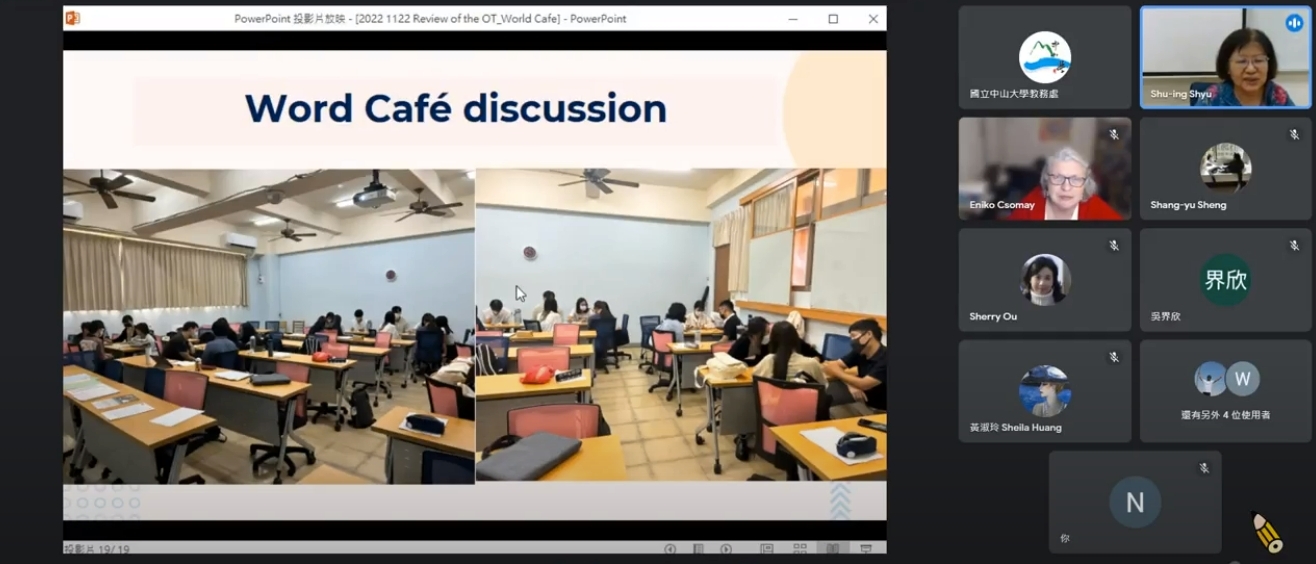
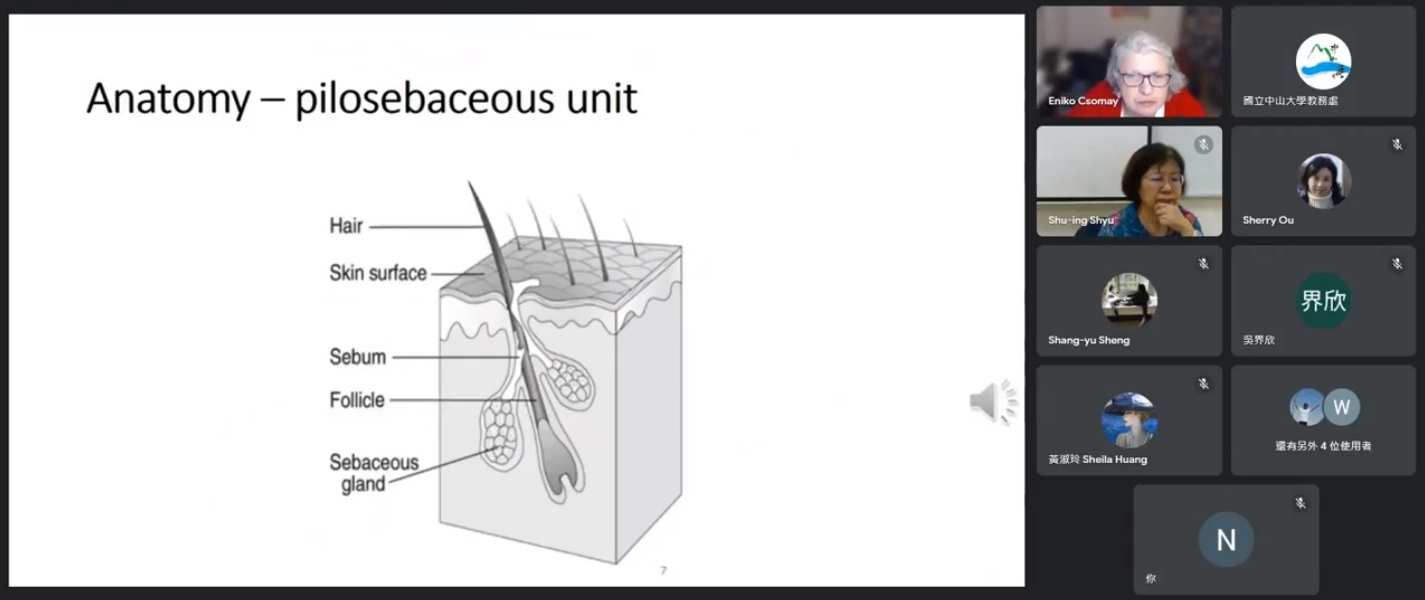
Eniko mentioned that good English could make students more competitive, as it could facilitate communication and gave students more possibilities. Teachers responded that some students might be resistant to EMI courses, if their goals were to pass a bar or get a certificate and knowing technical terms in English could not be very beneficial. But on the other hand, as many terms or concepts originated from English, learning them in an English context could actually be better for grasping such knowledge. A possible way to strike a balance was offerring Mandarin translations so that students can understand them in both contexts.
